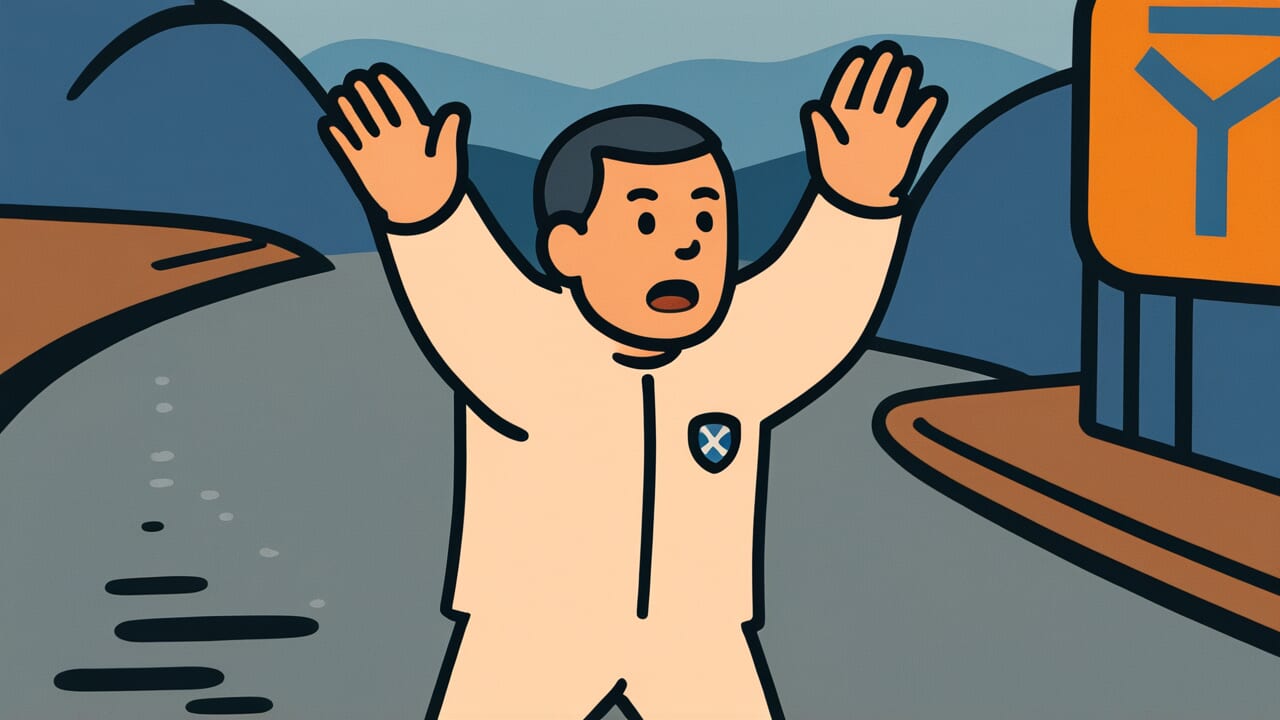How to Read “that which doesn’t kill you makes you stronger”
That which doesn’t kill you makes you stronger
[THAT witch DUZ-ent KILL yoo MAYKS yoo STRONG-er]
All words use standard pronunciation.
Meaning of “that which doesn’t kill you makes you stronger”
Simply put, this proverb means that surviving difficult experiences makes you tougher and more capable.
The basic idea is straightforward. When you face hardship and survive it, you become stronger. The saying suggests that painful experiences aren’t just obstacles. They’re actually opportunities to build inner strength. Think of it like exercise for your character.
We use this wisdom when life gets tough. Maybe someone loses a job and learns they can handle uncertainty. Perhaps a student fails a test and discovers better study habits. When relationships end, people often find they’re more independent than they thought. The proverb reminds us that struggle can lead to growth.
What’s interesting is how this wisdom challenges our natural thinking. Most people try to avoid pain and difficulty. But this saying suggests that avoiding all hardship might actually make us weaker. It’s like muscles that never get challenged. They stay small and weak. The proverb teaches that some struggle is necessary for strength.
Origin and Etymology
The exact origin of this specific phrase is unknown, though the idea appears in various forms throughout history.
The concept has ancient roots in human thinking about adversity. Many cultures developed similar sayings about hardship leading to strength. This reflects a common human observation about resilience. People noticed that those who survived difficulties often seemed tougher afterward. The idea made sense to many different societies.
The saying spread through literature and everyday conversation over centuries. Different versions appeared in various languages and cultures. Some focused on physical strength, others on mental toughness. The core message remained the same across these variations. Eventually, this particular wording became popular in English-speaking countries during the modern era.
Interesting Facts
The word “kill” in this context comes from Old English meaning “to strike down” or “destroy completely.” The phrase uses dramatic language to make its point stronger.
This proverb follows a common pattern in folk wisdom called antithesis. This means it contrasts opposite ideas – death versus strength – to create memorable impact.
The saying appears in similar forms across many languages, suggesting humans universally recognize this pattern about adversity and growth.
Usage Examples
- Coach to athlete: “I know these extra training sessions are brutal, but that which doesn’t kill you makes you stronger.”
- Friend to friend: “Getting through your divorce was hell, but that which doesn’t kill you makes you stronger.”
Universal Wisdom
This proverb captures a fundamental truth about human adaptation that our ancestors observed repeatedly. Throughout history, people noticed that individuals who survived famines, wars, or personal tragedies often displayed remarkable resilience afterward. They seemed to possess an inner toughness that those with easier lives lacked. This observation revealed something important about human nature.
The wisdom reflects how our minds and bodies actually work. When we face challenges, we develop new skills and mental frameworks to handle them. Our brains literally rewire themselves to cope with stress and difficulty. Our emotional systems learn to process pain and uncertainty. This isn’t just positive thinking – it’s biological reality. Each survived hardship becomes a reference point that whispers “you can handle this” during future struggles.
Yet this truth also reveals a troubling paradox about human development. The very experiences we most want to avoid may be exactly what we need to grow. Comfort and ease feel good, but they don’t build the psychological muscles we need for life’s inevitable difficulties. This creates a tension between our desire for happiness and our need for strength. Ancient people recognized this dilemma and created this saying to remind themselves that suffering, while painful, serves a purpose in human development.
When AI Hears This
We only hear success stories from people who survived their hardships. Those who were truly broken by tragedy cannot tell their tales. This creates a false picture where suffering always leads to strength. The proverb works like a magic trick that hides its failures.
Humans need to believe their pain has meaning and purpose. Without this belief, random suffering would feel unbearable and pointless. So people automatically rewrite their worst experiences as valuable lessons. This mental rewriting happens so naturally that most people never notice they are doing it.
This storytelling trick reveals something beautiful about human nature. People would rather find meaning in their pain than admit life is random. The proverb succeeds not because it describes reality accurately. It succeeds because it gives survivors a way to make sense of chaos.
Lessons for Today
Living with this wisdom requires recognizing that growth often comes disguised as problems we’d rather avoid. When difficulties arise, the natural response is to resist or escape them. But this understanding suggests a different approach – looking for what these experiences might teach us. This doesn’t mean seeking out unnecessary hardship or pretending pain doesn’t hurt. It means staying curious about what we might gain from challenges we can’t avoid.
In relationships, this wisdom helps us support others through their struggles without rushing to fix everything. Sometimes the most loving thing is to let someone work through their difficulty rather than removing all obstacles from their path. It also means being patient with our own growth process. Strength develops slowly, through repeated exposure to manageable challenges. We can’t rush this process or skip the uncomfortable parts.
For communities, this insight suggests that some struggle is healthy and necessary. Groups that never face any challenges may lack the resilience to handle real crises when they come. Organizations, families, and societies need opportunities to practice problem-solving and adaptation. The goal isn’t to create unnecessary hardship, but to recognize that working through difficulties together builds collective strength. This ancient wisdom reminds us that our struggles, while painful, are also shaping us into more capable versions of ourselves.



Comments